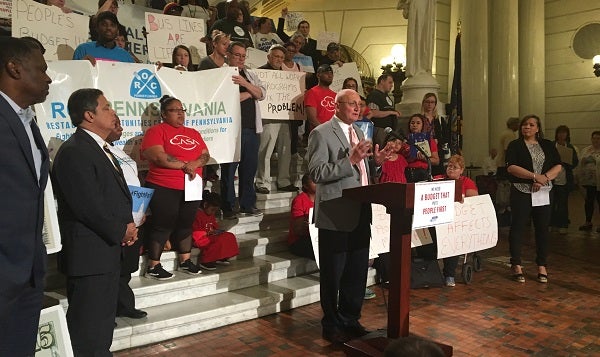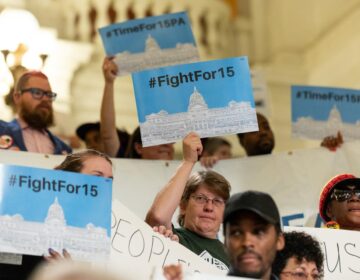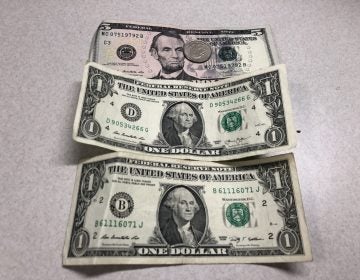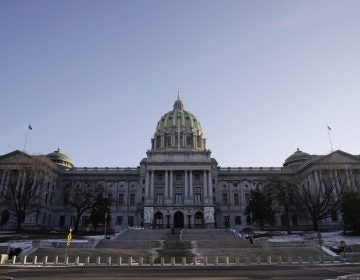Minimum wage, General Assistance top Pa. Dems’ budget wish-list
At the $7.25 federal minimum, Pennsylvania's wage is lower than that of any neighboring state.

Bucks County Representative Gene DiGirolamo advocates for a higher minimum wage. He is of the few Republicans who has publicly done so. (Katie Meyer/WITF)
The Republicans who control the House and Senate have a lot of the power when it comes to state budget negotiations. But as the June 30 deadline approaches, Democrats are trying to hold out on a few key issues — among them, saving General Assistance and raising the minimum wage.
At the $7.25 federal minimum, Pennsylvania’s wage is lower than that of any neighboring state.
Governor Tom Wolf and other Democrats have been pushing to raise it for years.
And Bucks County Representative Gene DiGirolamo — one of the few Republicans loudly in favor of an increase–said he thinks pressure on his conservative colleagues is reaching a critical point.
“My understanding is that it is part of the negotiations for the budget, and I think we’ve got a really good opportunity this year,” he said. “When I talk to my constituents, they ask me the question — why aren’t we raising the minimum wage?”
Some lawmakers have speculated Democrats might be able to get a wage win by compromising on certain regulatory requirements.
It’s an approach they’ve attempted in the past — for instance, when Senate Republicans passed a severance tax as part of a potential budget package in 2017. It’s the only time such a tax ever made it through a chamber, and it was possible because lawmakers agreed to several permitting changes, including one that allowed the Department of Environmental Protection to outsource permit allocation to third parties.
Also up in the air is the fate of General Assistance.
Many GOP lawmakers want to cut the program, which gives some poor people small sums of cash that they can use to buy toiletries and other necessities not covered by food stamps.
They got rid of it once before, in 2012. But the program landed back on the GOP chopping block after the state Supreme Court revived it last year on a technicality.
Wolf preemptively offered a concession to those pro-cut Republicans in his February budget pitch: moving the $50 million the program would get next year to PHARE, a housing assistance program.
Lieutenant Governor John Fetterman said he believes that proposal is still on the table.
“What I do know is the governor is deeply committed to and believes strongly that [General Assistance] should remain,” Fetterman said. But he noted, “this is a compromise with Republicans, whatever the final product is.”
The commonwealth is expected to end the year with a roughly $800 million surplus, about half of which is expected to be used to cover supplemental spending from this fiscal year.
Republicans and Democrats appear to agree that at least a portion of the rest should go into the near-empty rainy day fund, though there is considerable disagreement on how much.
WHYY is your source for fact-based, in-depth journalism and information. As a nonprofit organization, we rely on financial support from readers like you. Please give today.





